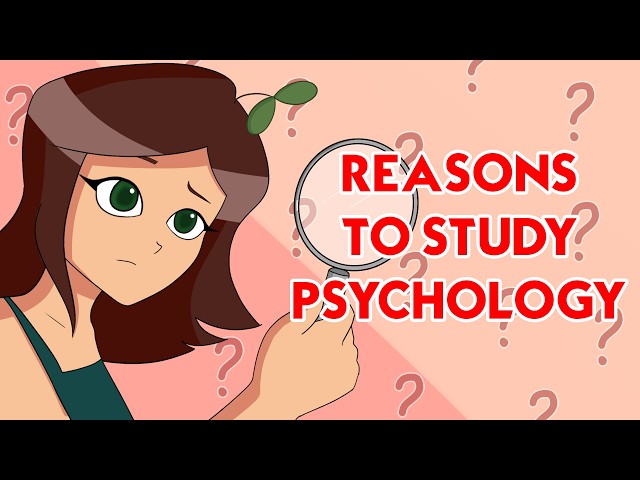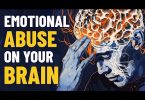If you think that psychology is only for students, professors, and therapists, think again. Psychology is used in many ways in your everyday life. Think about the last time you went shopping and saw a huge sign that one of your items was going out of stock permanently. Did you stock up? There you have it—that’s social psychology.
Psychology is the science of exploring the mind, looking at how people learn, and helping people make healthy lifestyle choices to improve well-being. With that said, here are many ways psychology can help you live a better life that you probably never thought about before, and six great reasons to study it.
Understand Other Relationships
According to Bustle magazine, Director of Education at the University of Pennsylvania’s Positive Psychology Center, James Pawelski, and Susan Piver, a well-being consultant, give some key tips to understanding others around us, including romantic relationships. Don’t try to complete your other half, but support each other. Don’t be totally fixated on your significant other; instead, be more in control of your own emotions. A big part of positive psychology is gratitude. PositivePsychology.com stresses the importance of expressing gratitude, which has a variety of mental health benefits and can also improve our relationships with other people. If you savor and appreciate what’s going well in your life, you’ll be able to appreciate the others around you—just like how using your own unique personal strengths can help you also appreciate other people’s strengths and values.
Understand Yourself
Getting to know ourselves matters because we can respond better to what’s going on in our lives. Margarita Tartakovsky for Psych Central tells us that we should learn to not let our emotions control us too much. According to psychotherapeutic counselor Lynn Martinson, when we aren’t in touch with our emotions, they can surprise us without warning. We may hurt others without meaning to or hold on to toxic people and habits when we shouldn’t. When we learn more about ourselves, we’re more able to take better control of our lives. Martinson gives some great ideas on how to get to know ourselves better. We can pay attention to our bodies and learn what they are saying to us. It just shows how the body and the mind are connected. Our bodies have stuff to tell us, and we often aren’t paying attention to them. A great tip is to keep a dream journal and a regular journal to keep track of your thoughts and feelings and think through how your day has gone.
Jinger Huon, a psychotherapist from Michigan, says it’s also important to explore negative feelings and experiences because they give us a lot of insight into ourselves, and we can learn a lot from them. Examining negative parts of your personality and your life can be challenging, so it’s important to go easy and not be harsh or judgmental with yourself. Getting to know yourself more helps you make better decisions and overall have a better life. Working with a mental health professional is another great way to dive deeper into yourself.
Communication Skills
You probably didn’t think psychology could help you communicate, right? According to YouthInsight.org, it can help you learn the best ways to approach people or share your opinions without causing offense. Psychology is not only about studying the mind but also human behavior, and by studying this, we can improve the ways we interact with others. The more we understand how people interact with us, the better we can understand how we are with others and how to adjust how we deal and communicate with different people depending on the circumstances.
Critical Thinking Skills
A study from the Society for the Teaching of Psychology concluded that the critical thinking skills of psychology students by the end of their time at university could potentially be increased. Critical thinking is not only important in the workplace but also in every aspect of your life. Degree programs in psychology have courses on research methods, which include scientific aspects requiring critical thinking due to the repeated exposure to research and experimental data that comes with studying the field. Some other ways that critical thinking can help you are by building self-compassion and understanding your strengths and weaknesses so you’ll be able to focus more on your strong suits rather than your weak areas.
Problem-Solving Skills
Dr. Lawrence Florco, a writer for Psychology Today who specializes in organizational psychology on workplace stress, explains how to improve our problem-solving with psychology. She suggests getting curious about other people’s points of view and differing perspectives, which give you different insights into problems you might not have thought about. She also suggests that thinking, daydreaming, and getting creative helps us break through stale thought patterns. Imagine you have to write an essay on pirates for school. Maybe while you’re doing your chores, you can pretend you’re Captain Jack Sparrow swabbing the decks while you’re mopping the floor and really get into the mindset of a pirate. She also advises being more flexible and thinking outside the box just in case life throws you for a loop. Remember, you don’t have to be perfect all the time and try to reach 100% when less is just as good. You’ll know your problem-solving skills are improving when you start getting excited instead of anxious about change and uncertainty in your life. This excitable energy also helps you increase your self-confidence, which leads to our next point.
Self-Confidence
One can gain self-confidence by learning and knowing more about oneself and their personality. This helps a person to know their weaknesses and enables them to build on them. According to psychologist Dr. Yvonne Thomas, confidence is all about how you trust yourself, your abilities, and your security. It also means you have a good sense of self and are self-assured. Confidence also gives us resilience and the ability to learn from something when it doesn’t go the way we thought it would. It helps us move forward, adapt, and not let things get us down. So, how can you increase your self-confidence? Here are a few ways according to the website HerMoney: Go easy on yourself and quiet down that inner critic. Speak to yourself more positively—remember, we can’t always be perfect. Focus on your unique natural skills. Learn to sit with and accept your emotions instead of running away from them. We mentioned earlier how listening to our bodies helps us understand ourselves, but it also helps us build self-confidence. Psychologist Oresto Lara de Roa gives similar advice: Pay attention to how you’re feeling, how your body is feeling, and what you’re thinking.







Leave a Comment